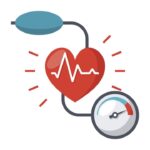A proper diet plays a crucial role in alleviating the symptoms of acid reflux. The prevalence of acid reflux in our society is substantial, often exacerbated by unhealthy eating habits and lifestyles, characterized by the consumption of acidic and fatty foods. To address acid reflux effectively, individuals should adopt a dietary regimen based on the strict principles. Let’s explore in this article what is beneficial foods for acid reflux sufferers.
1. Eating Principles for Acid Reflux Sufferers
Acid reflux can accelerate due to unhealthy eating habits and sedentary lifestyles. Excessive consumption of acidic and fatty foods contributes to various gastrointestinal issues. To expedite recovery from acid reflux, individuals should adhere to the following dietary principles:
– Choose neutralizing foods to reduce gastric acid secretion.
– Avoid foods that stimulate acid production or tighten the esophageal sphincter.
– Opt for smaller, more frequent meals, avoiding excessive fullness or extreme hunger.
– Stay adequately hydrated, incorporating fruit juices into the diet.
– Adhere to regular meal times and never skip a meal.
– Avoid nighttime eating and refrain from lying down immediately after a meal.

Adhere to regular meal times and never skip a meal.
2. Dietary Recommendations for Acid Reflux
In addition to medical treatment prescribed by specialists, individuals with acid reflux should pay careful attention to their diet. The following foods are recommended for acid reflux sufferers:
– Leafy greens: Vegetables such as cabbage, kale, and broccoli help control gastric acid levels.
– Legumes: Beans like green beans, soybeans, and black beans are rich in fiber and amino acids, aiding in neutralizing stomach acid. Soaking legumes before preparation is advisable.
– Ginger and turmeric: Known for their anti-acid reflux properties, these spices can be incorporated into daily meals or consumed as tea. Turmeric supplements can also be beneficial.
– Fruits: Most fruits contribute to acid balance in the stomach, with exceptions like citrus fruits (lemon, orange, and grapefruit).
– Lean meat: Opt for lean cuts to provide essential protein without putting excess strain on the digestive system.
– Healthy fats: Include sources of healthy fats, such as walnuts, flaxseeds, and avocados, known for their positive impact on digestive health.
– Oatmeal: Oats are effective in absorbing excess stomach acid and can be a beneficial breakfast option.
– Whole grain bread: Acts as a sponge to absorb excess stomach acid, aiding in symptom relief.
– Dairy: Low-fat or fat-free dairy products, like milk and yogurt, can help neutralize stomach acid.

Legumes are healthy food for acid reflux sufferers
3. Foods to Avoid
While building a reflux-friendly diet, it’s essential to avoid certain foods that can exacerbate symptoms:
– Salt and sugar: Regular consumption of salt and sugar can increase gastric fluid, intensifying acid reflux symptoms.
– Acidic foods: Citrus fruits, tomatoes, and certain berries can trigger acid reflux.
– Fatty foods: High-fat content in foods like fried items, fatty meats, and processed snacks can contribute to acid reflux.
– Alcohol and carbonated beverages: These can lead to increased acid production and weaken the protective lining of the stomach.

Eating salt and sugar regularly will make gastric reflux symptoms more serious
In conclusion, understanding the impact of food choices on acid reflux is crucial for effective management. It is important for individuals to consult with a specialist for accurate diagnosis and to tailor a treatment plan that aligns with their specific health needs.
It is important to note that the information provided is for reference purposes and research and does not replace medical consultations, diagnoses, or treatments. Patients should follow the guidance of healthcare professionals to ensure their health and well-being.








